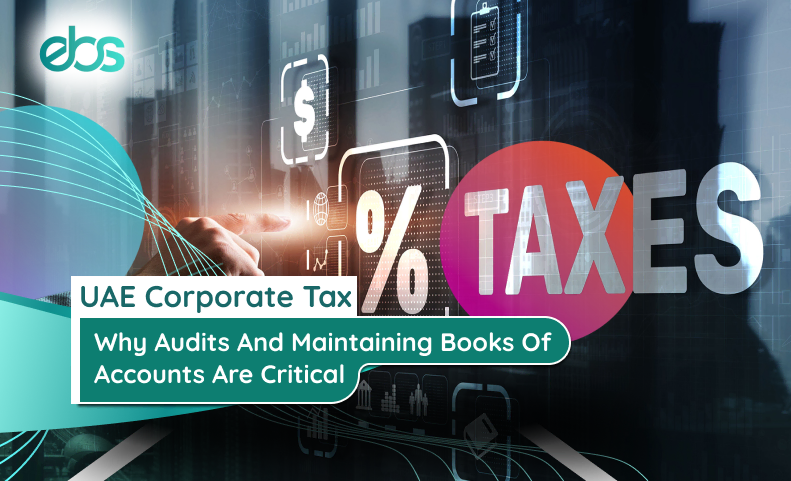Companies in the UAE are needed to maintain their books of accounts as per the UAE Law and the rules of free zone authorities. However, there are many businesses, especially small businesses who are yet to keep their books of accounts. Corporate tax consultants in Dubai suggest such businesses start maintaining their books of accounts and keep accurate financial statements as the government has implemented the corporate tax law.
The UAE corporate tax is now effective from June 1st, 2023, and the UAE government has also issued the corporate tax law. Businesses have to prepare for corporate tax as it is effective now. Even though businesses should make critical tax decisions as the law has been issued and maintenance of books of accounts can not be risked.
Maintaining The Books Of Accounts
According to the Public Consultation Document, a business will be needed to maintain the books of accounts to explain the information in the UAE corporate tax return and other documents. You need to maintain financial reports, financial statements, and accounting books to ensure corporate tax compliance in the UAE.
The books are needed to be complete and with no undisclosed expenses or income. Your accounting income includes commissions, profits from the sale of services or products, rents, capital gain, and interest. Moreover, businesses need to create ‘Capital’ in their books to support their investments. You can also get assistance from corporate tax service providers in Dubai for assistance.
Prepare Financial Statements For Your Firm
It is critical for you to prepare financial statements as the financial statements will indicate the taxable income of the company. This method eradicates the burden of maintaining two sets of records: one for UAE corporate tax purposes and the other for financial reporting. Businesses are required to prepare financial statements using accounting principles and standards that are accepted in the UAE.
The International Financial Reporting Standards is the most accepted accounting standard in the UAE. However, taxpayers such as SMEs and startups are allowed to use other financial reporting standards to determine taxable income. If the startups use alternative accounting standards, it will reduce the compliance cost for certain of them.
Free Zone Persons Must Audit Financial Statements
Companies and businesses registered with a free zone are referred to as a Free Zone Person. Free Zone Persons fall within the scope of corporate tax in UAE with the obligation to file tax returns. However, the UAE corporate tax regime will honor the tax incentives being offered to Free Zone Persons provided they keep substance and comply with all regulatory requirements. If the free zone people have to enjoy the 0% corporate tax rate, they must prepare accurate financial statements and get them audited also.
Exempted Persons Must Maintain Records
Companies or businesses that are exempt from the scope of corporate tax in the UAE are known as Exempt Persons. Exempt persons under the UAE corporate tax must keep the books of accounts and other related records so that the FTA can check their exempt status.
If you are an exempt person, then it is advisable for you to consult with the corporate tax advisors in Dubai to enjoy corporate tax exemption.
ebs provide the best accounting and bookkeeping services for every type of business. We provide you with the best corporate tax services and also the best tax advice.
ebs likewise offer services, such as accounting and bookkeeping services, VAT services, Auditing, Due Diligence audit services, and many more.
Feel free to contact us with any additional inquiries or requests for accounting services. A free discussion will be given to you by our specialists, who will answer your request immediately.

